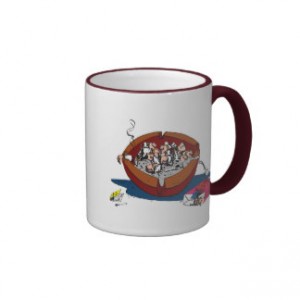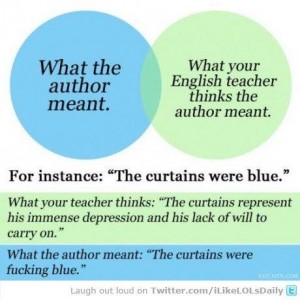I have talked about the importance of diversity in writing before, in detail, so I won’t go into that at length again today. I mention it only because it does relate to what I want to talk about today, which is how stories are given and received.
I often say you need to study English Literature while you are young. That’s because as you get older and maybe a little more jaded, you start to realise that writers are people. Worse, they are people with deadlines and insecurities and tea addictions and family problems and hospital appointments and crummy landlords and all the same crap we have. Actually it’s not a bad thing, in fact if writers weren’t real people they’d be way less interesting. There is something of a loss of mysticism though and that makes it harder to really believe that the placement of the cigarette in the mug instead of the ashtray meant something deep and symbolic about how the character felt about themselves and the state of their relationship and you know the economy or puppies or something, (like your eng lit teacher would tell you) and you start to suspect the writer forgot they had put an ashtray within reach, but remembered the character hadn’t quite finished the coffee (because that happened loads when you were a student). My dear Mrs Chapman (my eng lit teacher) I am truly sorry, but it turns out that the vast majority of the time the curtains are simply blue.
This leads me on to the point that intersects neatly with why I love diversity. Everything we read goes through two key filters (putting aside agents, editors, proof readers, etc etc ). The first filter is that unique element of every story, the story teller. If you give a dozen people the same brief you get a dozen different stories (essentially this is how anthologies happen) because everyone has a different experience of life that they bring to their work. The more varied you want your reading experience to be, the more varied your writers should be. If your shelves are full of writer type a you are experiencing fiction through dozens/hundreds of very similar filters. Try something different. I promise it makes it much more interesting.
The second filter then is equally unique. The second filter is the reader. Which is interesting because it means not only do no two people write the same story the same way, but neither do any two people read the same story the same way. Not exactly. We all affect it through our experience the same way the writer affects it with theirs. However as a reader you will only truly experience your own reading, so you must look for your diversity in writers. I know, it’s a drum I keep banging, but that’s because it matters. And I’m right.
This throws up an interesting question. If the writer simply forgot about the ashtray, but the reader takes meaning from stubbing a cigarette out in the mug is the reader wrong? Can the curtains only ever be blue?

I’d suggest not. I think its ok to read more into it. That if the reader finds it speaks to them in a different, deeper way then actually that’s great, they’ve got something they needed or wanted. I have never believed that stories need to have a deeper meaning. I have always held that stories are important for their own sake and the idea that a tale has to have a purpose, a message or moral is a disservice to the importance they play in our lives in the first place. I would never deny anyone the right to find more in a story though. I am quite sure I have. It’s ok to take whatever you take from a story.
That the writer wasn’t cleverly concealing more meaning in an action or a choice in no way negates that the reader gets that from the story. I don’t generally ask ‘did you mean for your book to have this impact’ because it doesn’t matter. It had the impact whether it was intended or not.
So after all that do I have a point?
I think I do and I think it goes something like this.
The writer will write the story they want to write. That may not be the story the reader reads. That’s ok.
I’d also add, because it can never be said too much in my view, that stories matter because they are stories and really, they don’t need to be anything more.

